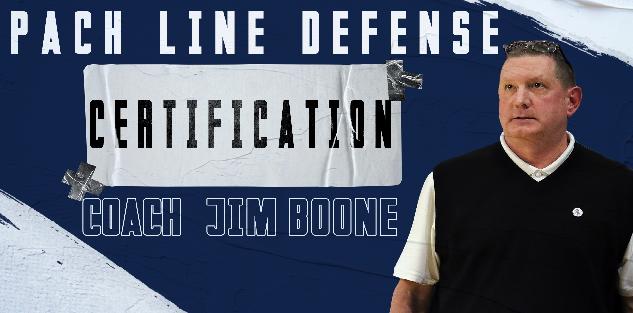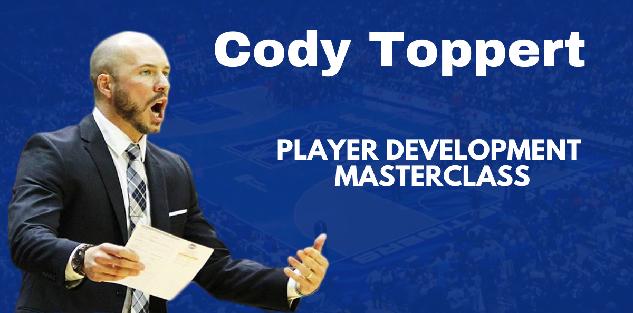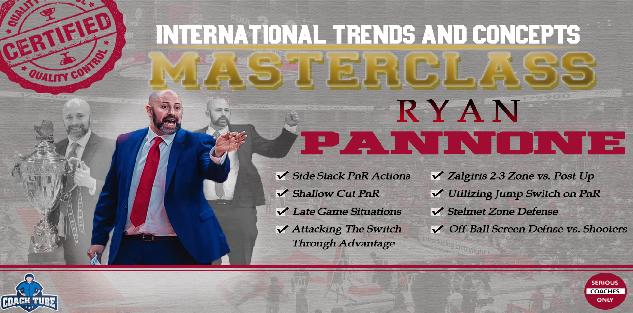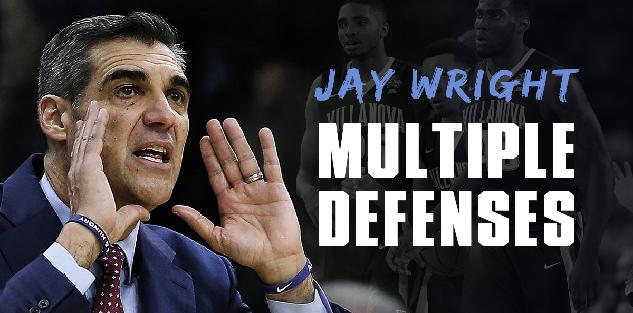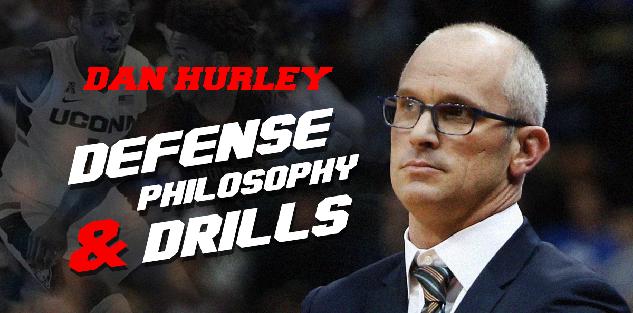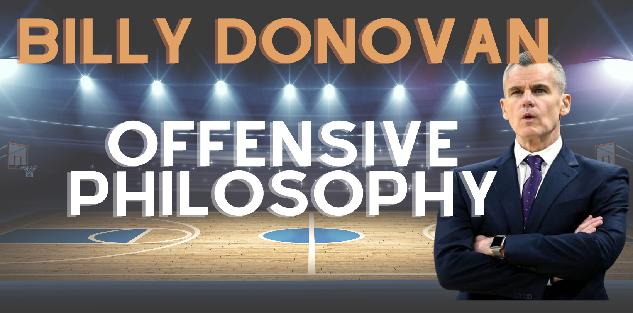Featured courses
- Two Great Game Situational Workouts For the Basketball Offseason by Grant Young
- Two Reads Basketball Players Must Understand Before Executing the Ball-Screen by Grant Young
- Two of LSU Coach Kim Mulkey’s Game-Winning Inbounds Plays by Grant Young
- Three Effective Early-Season Defensive Basketball Drills by Grant Young
- Four Essential Tips For Basketball’s 1-3-1 Zone Defense by Grant Young
- Four Zone Defense Drills to Strengthen Your Team by Grant Young
- How to Beat the Three Most Common Pick and Roll Coverages by Grant Young
- Two Drills to Improve Shooting at the Start of the Basketball Season by Grant Young
- Core Basketball Principles That Dallas Mavericks Coach Sean Sweeney Teaches by Grant Young
- Three Competitive Shooting Drills For Your Basketball Team by Grant Young
- How To Teach The ‘I’ Generation of Basketball Players by Grant Young
- Three Elite Drills to Begin a Basketball Practice With by Grant Young
- How to Build a Championship-Winning Basketball Team Culture by Grant Young
- Two of Texas Women’s Basketball Coach Vic Schaefer’s Tips For Team Culture by Grant Young
- Atlanta Dream WNBA Coach Brandi Poole’s Four Sets for Secondary Offense by Grant Young
- NC State Basketball Coach Brett Nelson’s 4 Crucial Point Guard Qualities by Grant Young
- Kentucky Coach Mark Pope’s Five Guard Rules For Offense by Grant Young
- McNeese State Basketball Coach Will Wade’s 4 Core Pillars by Grant Young
- 4 Tips To Instantly Improve Your Free Throw Shooting by Tyler Linderman
- Assemble a Championship-Caliber Basketball Rotation by Brandon Ogle
- Two of UConn Coach Dan Hurley’s Key Defensive Drills by Grant Young
- Four Post Moves All Basketball Forwards Should Have In Their Bag by Grant Young
- Four of Baylor Coach Nicki Collen’s Midseason Pick and Roll Adjustments by Grant Young
- WNBA Legend Sue Bird’s Two Tips For Attacking on Offense by Grant Young
- Houston Coach Kelvin Sampson’s Three Keys for Building a Basketball Program by Grant Young
- Two of Tom Izzo’s Top Michigan State Defensive Drills by Grant Young
- Four of Olympic Gold Medalist Coach Mechelle Freeman’s Relay Race Strategies by Grant Young
- Three Key Strategies Will Wade Uses to Build a Dominant Team by William Markey
- Five UConn Huskies Men’s Basketball Plays That You Can Use by Grant Young
- Three Tips for Maintaining Team Culture at the End of a Basketball Season by Grant Young
- Three Dribble Drive Motion Drills to Teach Your Basketball Team by Grant Young
- Three Dribbling Drills For Non-Primary Ball Handlers by Grant Young
- Four Advanced Ball Handling Drills For Basketball Guards by Grant Young
- Three Tips to Sharpen Your Post Player’s Footwork in Basketball by Grant Young
- These Three Pick and Roll Drills Are Crucial For Any Ball Screen Offense by Grant Young
- Three Closeout Drills to Improve Basketball Shooting Defense by Grant Young
- Three Tips to Perfect the Packline Defense in Basketball by Grant Young
- Four Keys to Executing the Read and React Offense in Basketball by Grant Young
- Three Tips to Develop Elite Basketball Shooters by Grant Young
- Three Crucial Keys to Executing the 5 Out Offense in Basketball by Grant Young
- These Three Offensive Sets Will Help You Beat Any Zone Defense by Grant Young
- Three Transition Basketball Drills To Play With More Pace by Grant Young
- Three 5 Out Offense Drills Any Basketball Coach Can Use by Grant Young
- Four Vital Techniques for a Motion Offense in Basketball by Grant Young
- Three Baseline Inbounds Plays To Win Your Basketball Team Games by Grant Young
- Four Drills For Sharpening the European Ball Screen Offense by Grant Young
- Three Positioning Tricks For a Basketball Zone Offense by Grant Young
- Three Rules to Perfecting Basketball's Lock Left Defensive System by Grant Young
- UCLA WBB Coach Cori Close’s Two Keys to Winning the Mental Game by Grant Young
- Four of Alabama Coach Nate Oats’ Favorite Basketball Drills by Grant Young
- Three Ways To Turn Transition Offense in Basketball Into Points by Grant Young
- Three Drills to Master Basketball's Pack Line Defense by Grant Young
- Three Transition Defense Drills to Halt Fast Breaks by Grant Young
- Four Offensive Rebounding Drills to Win Second Possessions by Grant Young
- 4 Defensive Technique Drills from Boston Celtics Assistant Coach Brandon Bailey by Marek Hulva
- 5 Drills to Improve Ball Handling by Tyler Linderman
- 13 FUNNY BASKETBALL GIFS by Alex
- BASKETBALL SPEED AND AGILITY: 8 QUESTIONS FOR COACHTUBE EXPERT RICH STONER by Jaycob Ammerman
- Defensive Strategies for Basketball by Ryan Brennan
- 4 Keys To Turning Your Program Into Championship Contender By Dallas Mavericks Coach Sean Sweeney by Marek Hulva
- 5 Components to Creating a Winning Basketball Program by Justin Tran
- Guide to Becoming a Lethal Scorer in Basketball by Justin Tran
- Zone Defense In the NBA Eastern Conference Finals by James Locke
- Mastering Court Mobility: Tips for Effective Movement in Basketball by Justin Tran
- 5 Basketball Shooting Drills: How to Develop a Sharpshooter by James Locke
- 6 Points of Emphasis for a Successful 5 Out Offense by Jaycob Ammerman
- Effective and Efficient Methods to Practice During the Basketball Season by Justin Tran
- Three Great Passing Drills From a Basketball Coaching Legend by Grant Young
- 7 Principles For Perfecting the Princeton Offense in Basketball by Grant Young
- How to Replicate A Modern NBA Offense by Grant Young
- Three Great Two-Ball Dribbling Drills For Basketball Development by Grant Young
- Two Rebounding Drills to Win Your Basketball Team Championships by Grant Young
- How to Improve Your Basketball Team’s Defense With the Shell Drill by Grant Young
- How Baylor Basketball’s Scott Drew Develops Elite Guard Play by Grant Young
- Off-Ball Movement Tips and Strategies: Lessons From the NBA Finals by James Locke
- Player Development: Scott Drew’s Tips for Producing NBA Guards by James Locke
- How to Execute a Spread Offense in Basketball by Grant Young
- Four Quality Quotes From Four Final Four Coaches by Grant Young
- A Guide to the Pack Line Defense by Alex Martinez
- 3 Defensive Build Up Drills to Improve Team Basketball Defense by Grant Young
- Battle of Two Great Coaches: Best Plays from the NBA Finals Contenders by Justin Tran
- 10 Creative Ways Athletic Programs Can Use a Video Board to Raise Money by Coach Williams
- How to Use 3 on 3 to Improve Your Basketball Team by Grant Young
- How to Defend the Pick and Roll by Grant Young
- Mastering Basketball Defense: Techniques, Drills, and Strategies for Success by Justin Tran
- Three Tips From The Coach Who Developed Giannis Antetokoumnpo by Grant Young
- 2023 NBA Draft: Skills and Technique from Top Prospects by Justin Tran
- From College to the Pros: Transitioning the Dribble Drive Offense by Justin Tran
- Positionless Basketball: Redefining Roles on the Court by Justin Tran
- Revolutionize Your Offense: Proven Concepts to Elevate Your Basketball Game by Justin Tran
- 5 Essential Fastbreak Drills Every Basketball Coach Should Know by James Locke
- How to Run a Circle Offense in Basketball by Grant Young
- Game-Changing Strategies: ATO Plays in the EuroLeague and Olympics by Justin Tran
- How to Stand Out at Basketball Tryouts by Grant Young
- How to Improve Your Basketball Team’s Transition Defense by Grant Young
- Indiana Fever GM Lin Dunn’s Two Keys For Women’s Basketball Coaches by Grant Young
- Strength Training Strategies Every Basketball Player Should Have by Grant Young
- A WNBA Basketball Coach’s Four Priorities In Transition Defense by Grant Young
- Three Adjustments to Make When Your Basketball Offense Isn’t Working by Grant Young
- Three Pillars to Applying Defensive Pressure on the Basketball Court by Grant Young
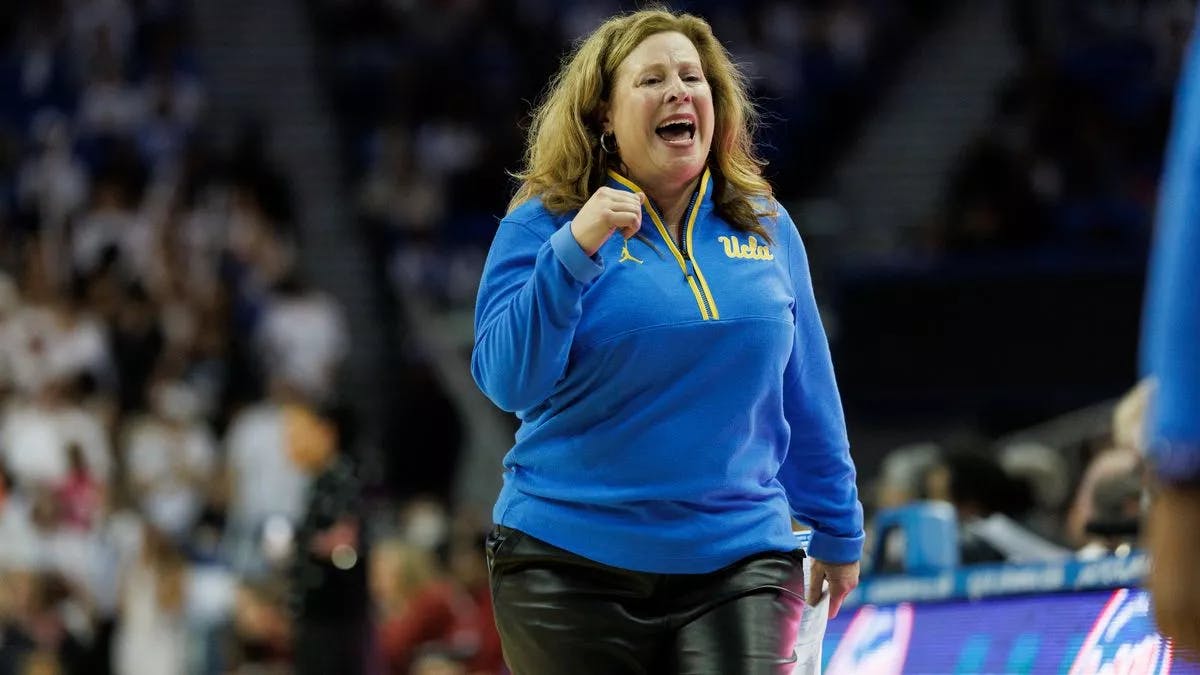
UCLA WBB Coach Cori Close’s Two Keys to Winning the Mental Game
- By Grant Young
At the time of this article, the UCLA Bruins NCAA Women’s Basketball team is the No. 1 team in the country, as they have amassed a perfect 14-0 record.
Among these wins is a dominant 77-62 victory over the South Carolina Gamecocks, who were the 2024 NCAA Champions and had won 43 consecutive games before the Bruins defeated them at home.
Cultivating mental toughness in basketball can be difficult because the pressure to perform consistently can lead to anxiety, making it hard to maintain focus under stress. Additionally, players must navigate the emotional highs and lows of competition, which can drain their mental resilience.
Continuous criticism from coaches and fans — especially at the game’s highest levels — can also undermine confidence, introducing self-doubt. Not to mention how each player's unique background and experiences shape their mental approach, making a one-size-fits-all strategy ineffective.
UCLA’s head coach Cori Close has turned her team into a National Championship contender by turning mental fortitude into a weapon on the court. Coach Close was named the UCLA Women’s Head Basketball Coach in 2011 and is currently 291-140 overall. She joins Billie Moore (296-181) and Kathy Olivier (232-208) as the only coaches in program history to eclipse the 200-win milestone.
UCLA saw its second-consecutive 27-win season in the 2023-24 campaign, tying the third-most wins in a season in UCLA program history. The 2023-24 Bruins made a run to the Sweet Sixteen for the second-consecutive year under Close’s guidance; UCLA has reached at least the second round of the NCAA tournament in seven of the last nine seasons. UCLA crashed the boards as directed by Close and led the NCAA in rebounding margin (+13.9) for the 2023-24 season.
Coach Close’s ‘Cori Close - Coaching The Mental Game of Basketball’ conveys the key tactics she uses when instilling mental toughness within her Bruins basketball team. We have pulled perhaps the two most vital lessons of her course and included them below for you to glean and bring to your own team to enhance their mental strength.
Refocusing vs Focusing
Coach Close stresses that coaches must emphasize to their players that basketball is a game that’s rooted in failure because this will teach them to not become overly upset or frustrated when it inevitably arrives.
In order to achieve this, Coach Close emphasizes “refocusing, not focusing”. She notes that while of course coaches want their players to be focused throughout a game, she can’t even go an entire staff meeting remaining focused — so why should she expect her players to do something even she can’t do?
But players can increase the quickness of how and when they refocus. The way UCLA and Coach Close accomplish this is by helping every player develop what she calls a “refocus routine”.
This is a set of simple actions that a player can utilize and turn into a habit when they’re told or recognize that it’s time to refocus on (and off) the court. This can be closing their eyes for a few moments, taking a deep breath, tying their shoes, or anything else that can be accomplished in a few seconds that can essentially serve as a reset button.
Another tool that UCLA and Coach Close use is “E + R = O”. This means Event + Response = Outcome.
Events (both positive and negative) happen; especially in basketball, where every possession in a game (in which there are dozens if not hundreds) comes with success or failure.
“We want to strengthen their R to be greater than every E they’re going to face,” Coach Close said. This will not only help her players on the court, but will help them in life whenever their playing career come to an end.
Resetting Players' View of Adversity
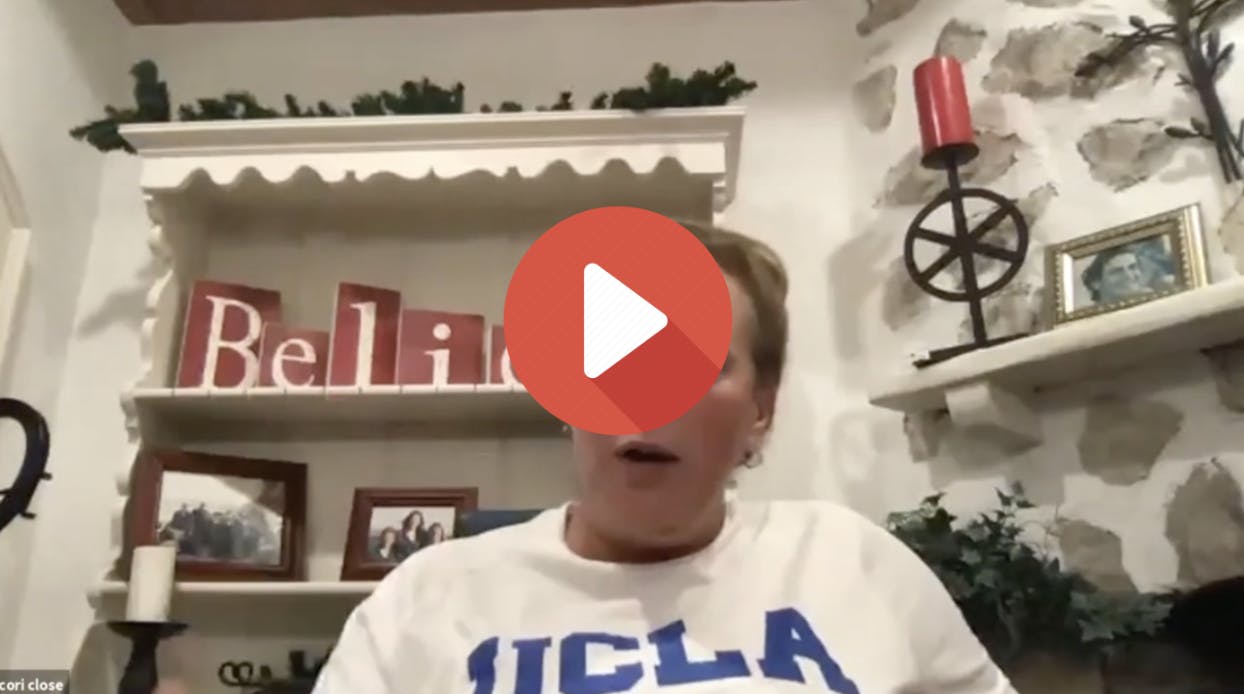
Coach Close explains that coaches must, “Layer experiences to control [a player’s] preparation and opportunities.” And in doing so, this will allow a coach to help a player, “reframe how they see adversity, and hard things. And it creates freedom.”
Coach Close then relayed a story of a longtime friend and former WNBA player she knew who recently spoke to her team. This player (who was on the Los Angeles Sparks when they won the 2016 WNBA Championship) was able to surrender to the game’s result of those WNBA Finals because she knew she did everything she could to become a good teammate.
Because this player had sacrificed as a teammate and done everything under their control to master her craft, they could still play with freedom, regardless of whether the game had gone her way.
This, in Coach Close’s opinion, makes for an extremely mentally strong athlete and is something that she is looking to instill within her players so that their conception of success and adversity isn’t tied to outcomes on the court.

